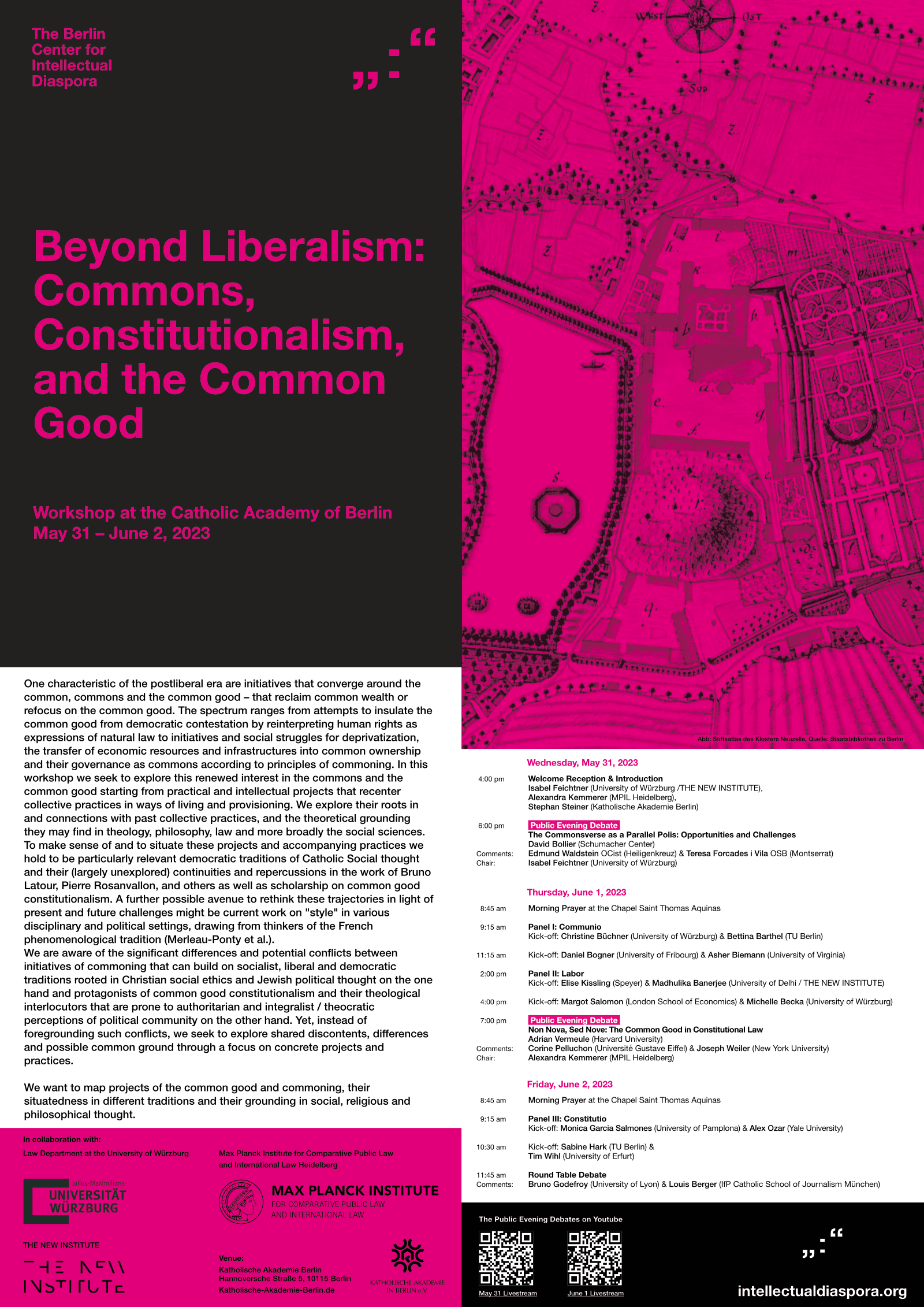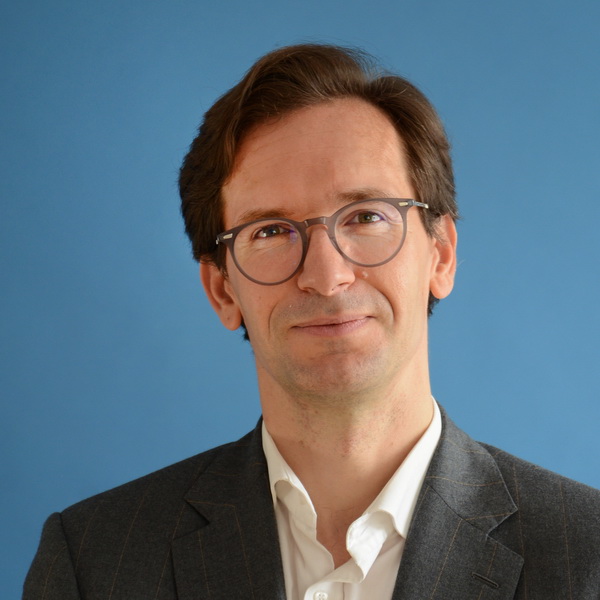
Beyond Liberalism: Commons, Constitutionalism, and the Common Good

In collaboration with the Max Planck Institute for Comparative Public Law and International Law Heidelberg and the University of Würzburg.
One characteristic of the postliberal era are initiatives that converge around the common, commons and the common good – that reclaim common wealth or refocus on the common good. The spectrum ranges from attempts to insulate the common good from democratic contestation by reinterpreting human rights as expressions of natural law to initiatives and social struggles for deprivatization, the transfer of economic resources and infrastructures into common ownership and their governance as commons according to principles of commoning. In this workshop we seek to explore this renewed interest in the commons and the common good starting from practical and intellectual projects that recenter collective practices in ways of living and provisioning. We explore their roots in and connections with past collective practices, and the theoretical grounding they may find in theology, philosophy, law and more broadly the social sciences. To make sense of and to situate these projects and accompanying practices we hold to be particularly relevant democratic traditions of Catholic Social thought and their (largely unexplored) continuities and repercussions in the work of Bruno Latour, Pierre Rosanvallon, and others as well as scholarship on common good constitutionalism. A further possible avenue to rethink these trajectories in light of present and future challenges might be current work on „style“ in various disciplinary and political settings, drawing from thinkers of the French phenomenological tradition (Merleau-Ponty et al.).
We are aware of the significant differences and potential conflicts between initiatives of commoning that can build on socialist, liberal and democratic traditions rooted in Christian social ethics and Jewish political thought on the one hand and protagonists of common good constitutionalism and their theological interlocutors that are prone to authoritarian and integralist / theocratic perceptions of political community on the other hand. Yet, instead of foregrounding such conflicts, we seek to explore shared discontents, differences and possible common ground through a focus on concrete projects and practices.
We want to map projects of the common good and commoning, their situatedness in different traditions and their grounding in social, religious and philosophical thought across three interconnected and overlapping themes and clusters of questions:
COMMUNIO: Ways of life, styles of life: communes and collectives, experiments in monastic and self-subsistent ways of life raise questions as to how they relate to broader society; how they understand their collectivity, its underlying values and principles such as subsidiarity and solidarity; the rules that govern relations amongst members, with the outside and the more-than human world; whether they aim to be seeds of a wider-ranging social transformations or are an expression of withdrawal from society. What are their collectively shared values or the shared commitments that constitute the ground of mutual recognition as members of this community? What are the rules/mechanisms of inclusion and exclusion as well as conflict resolution? How are human collectives embedded in their non-human environment (GAIA), and what are the consequences of such embeddedness?
LABOR: modes of production: Projects of commoning as well as Common Good Constitutionalism are critical of political economy. While Common Good Constitutionalism appears to entrust a strong government with protecting the weak from the life-destroying excesses of capitalism, projects of commoning center on common ownership, aim at deprivatization, socialization and democratization. Both converge in their claim for greater autonomy of communities and collectives based on solidarity. Open questions concern the pathways to socialization, the organizational form of autonomous collectives, their governance as well as their relation with the surrounding market economy and protection from capitalist incursions and colonizations. Other projects such as, e.g. in Christian monasticism, the reinvention of a “grange cistercienne pour le XXIème siècle” or the transformation of a large convent into a local community space, are less explicit in their critique of political economy. How do they perceive of their economic basis and problematize their integration in a capitalist political economy?
CONSTITUTIO: Legal Constitutions of the Common(s) / Common Good Constitutionalism. What is the law of the commons? What are the rules that members of commons associations live by? How do commons associations or collectives that strive for the common good perceive of rules and of the role of law in their internal governance and “external relations”? What is their understanding of individual rights and freedom? Do they – as proposed in scholarship on commoning — perceive of law itself as a commons that should be vernacular, decolonial and emerge from below? Or do they – more in line with Common Good Constitutionalism — see themselves as units of a larger hierarchically organized (state) order that is governed by a constitution from which their autonomy is derived according to the principle of subsidiarity? Can multidimensional liberal traditions and approaches recognising the relevance of (religious) values and virtues be considered as potentially mediating and connecting dynamics in ever more polarising social and cultural struggles about “the common”? What is the contribution of (sacred) natural law traditions? Can solidarity, subsidiarity and dignity serve as shared and common concepts and principles, allowing for and enabling enhanced (democratic) self-determination and participation?



